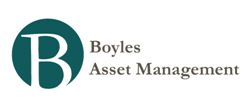Seth Klarman quote and some thoughts on deliberate practice in investing
“To achieve long-term success over many financial market and economic cycles, observing a few rules is not enough. Too many things change too quickly in the investment world for that approach to succeed. It is necessary instead to understand the rationale behind the rules in order to appreciate why they work when they do and don't when they don't.” -Seth Klarman
..........
The quote above reminded a lot of a discussion I've had with a few friends recently. Below is an edited version of some of my thoughts to one of those friends that relate to the quote above. If you have any thoughts or comments, send me an email ([email protected]).
I’ve been very interested in the idea of expertise and deliberate practice, and the difficulty of applying it to the investment business. I’m especially not inclined to disagree too much with Danny Kahneman when he says “There are domains in which expertise is not possible. Stock picking is a good example.” And so I try to reconcile that with the fact that some great investors obviously do show expertise and then also reconcile that will the whole ‘Fooled by Randomness’ idea where even though Bill Miller’s record for that 15 years seemed great, the odds of someone outperforming every year during a 15 year period is roughly 3 in 4. Combining all of those ideas with the idea of deliberate practice and the examples Gladwell gives in his book Blink, makes me think that expertise means knowing something so well that you can very (or relatively compared to peers, depending on the field) quickly make an accurate decision. For investing, I think there isn’t one set of valuation metrics because assets change over time, the interconnectedness of everything changes, laws change, etc., etc.….bottom line, there is too much complexity. But where I do think expertise can become valid in the investment process is the filtering process.
If one has good filters (which I like to think of as a checklist at the beginning of the research process – or just a really good understanding of what is on your checklist to avoid looking at things that will fail later), he can avoid wasting time on fruitless research, which can give one a time advantage. And maybe one can follow certain economic and market data to know where there is too much risk and what to avoid (i.e. bubbles) that can give one an advantage of not being surprised or as vulnerable to things that are gray swans to some and black swans to others. Having a deep enough knowledge of industries and economic history to know that when something initially comes up and looks cheap whether or not it’s a value trap, worth spending more time on, or if it's better to look for things that fit that initial filter better can probably give one a decent advantage in the investing world.
All in all, I’m still just in the brainstorming stage, but the goal is to eventually use the studying of mistakes and more market history to not just add to my checklist, but to be able to create a real expertise that is tough to do consistently in the money management business.
- Fundamentals...
A big thanks to Jason Zweig for mentioning me and this blog in his article Read ‘Em and Reap: Smart People for Investors to Follow. That recognition from someone I admire--and that I think just about every value investor would put near the top of their...
- Filters
Below is an investment letter I wrote in February of last year. The essence of what I was trying to get at is essentially what Sanjay Bakshi was saying (though more clearly and elegantly than I did) in his recent interview with Vishal Khandelwal...
- Most Highlighted Kindle Passages From Gladwell's Outliers
Currently the most highlighted Kindle passages from Outliers: The Story of Success, By Malcolm Gladwell. For other books, go HERE. Success is the result of what sociologists like to call “accumulative advantage.”Highlighted by 1659 Kindle usersAchievement...
- Deliberate Practice: Becoming A Better Investor
Tariq at the Street Capitalist blog had a great post on a frequent topic on this blog: deliberate practice. He had some great thoughts on applying deliberate practice to investing, which are pasted below. I gave a presentation on this topic last March....
- The Wine Cellar - Brett Arends On Bunting's Laws
The Wine Cellar series journals investing analysis that I find valuable over the long haul. This entry is more like a nice warm pint of ESB. One hidden gem I came across last year is Brett Arends' account of Bunting's laws - 12 stock investing...

